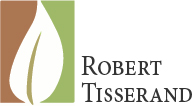Hi Robert,
I have read that the essential oil extraction process can (but doesn’t’ always) include the use of solvents, and that many of the manufacturers buy and distribute oils that contain these solvents (claiming that they are pure). Can you recommend a manufacturer and or a distributor that can be trusted to sell high quality oils?
Thanks,
Dr. James Lembeck
Hi James,
Essential oils are extracted by steam or water distillation, citrus oils generally by expression. Other than water or steam, no solvents are involved. So there are no solvent-extracted essential oils.
Concretes, absolutes and resinoids are extracted using solvents, most commonly hexane. (Benzene used to be used, but is no longer due to toxicity). This is the nature of the process, so there are no concretes or absolutes that are not extracted using solvents. Absolutes are widely used in fragrances and food flavorings, and a few are used in aromatherapy – most commonly rose and jasmine. Rose essential oil is also produced. So there are rose oils, and also rose absolutes.
Concretes and absolutes always contain traces of the solvent used – usually in the 1-5 ppm range. Hexane is not highly toxic, and this concentration of hexane possesses zero toxicity, hence approval for food use.
CO2 extracts are made using CO2 as a solvent. Of course we are constantly exposed to large concentrations of CO2 whenever we breathe, so it is not toxic to humans. CO2 extracts are neither essential oils nor absolutes.
Very occasionally, extraction is performed using both distillation and solvent extraction, but this is almost never used for commercial production – only experimental.
If you want to avoid fragrance raw materials that contain solvents, then don’t buy concretes or absolutes.
Regards,
Robert


” and that many of the manufacturers buy and distribute oils that contain these solvents (claiming that they are pure).” Seems to me the only ones I ever see making those claims are the representatives (and literature) of the two MLM’s. A shame they can’t prosper without casting aspersions on all the other producers and suppliers in the universe. Loved your answer, Robert…